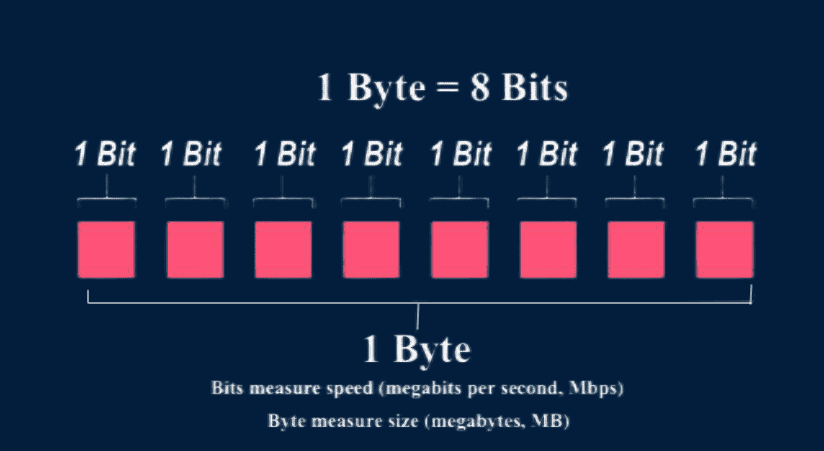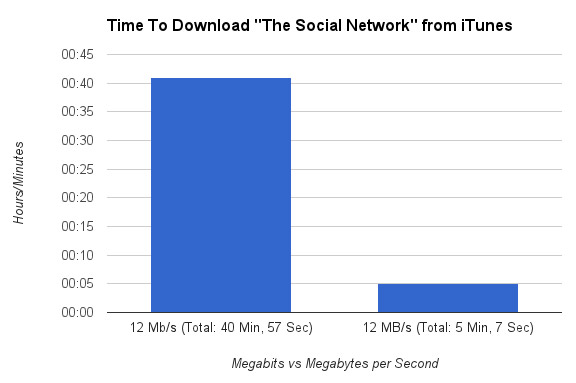Comprehending Just How Megabits Per Second Affect Your Internet Experience
Comprehending Just How Megabits Per Second Affect Your Internet Experience
Blog Article
How Megabits Per Second Impact Your Online Activities
The idea of megabits per second (Mbps) plays a crucial function in shaping our on the internet experiences. Higher Mbps can improve performance and minimize disruptions, while poor speeds might foster frustration and inadequacy.
Understanding Megabits Per Second
When considering net speed, it's necessary to understand the principle of megabits per second (Mbps), which offers as a standard dimension for data transfer rates. This statistics quantifies just how much data can be transferred over a net link in one second, providing a clear understanding of performance capacities - Megabits Per Second. For context, one megabit amounts to one million bits, and Mbps is generally used to reveal transmission capacity for various on the internet tasks
A higher Mbps indicates a quicker internet link, enabling users to do jobs such as downloading files, searching internet sites, and participating in online video gaming a lot more successfully. Common browsing needs around 1-5 Mbps, while streaming high-def video clip might require 5-25 Mbps. Understanding these requirements is important for determining the suitable web speed needed for particular activities.
Furthermore, the number of devices attached to a network can affect general efficiency. Several users streaming, video gaming, or downloading concurrently can stress offered data transfer, leading to slower speeds - Megabits Per Second. Examining personal online practices and requirements is vital in selecting an internet strategy that straightens with one's requirements, ensuring a smooth electronic experience
Streaming and Buffering Issues
Streaming high-definition content has come to be a staple of modern-day on the internet enjoyment, yet it is commonly gone along with by annoying buffering issues. These disturbances can dramatically diminish the seeing experience, leading to frustration and possible loss of audience engagement. Buffering takes place when the data transmitted from the streaming solution is not received promptly sufficient to maintain a smooth playback, usually because of insufficient net speed gauged in megabits per second (Mbps)

Furthermore, real-time streaming can be affected by network blockage, which happens when several devices share the very same transmission capacity. Optimizing link speed and ensuring appropriate Mbps is vital for a seamless streaming experience. As streaming solutions continue to progress, understanding the influence of Mbps on buffering problems remains critical for customers seeking nonstop enjoyment.
Online Gaming Efficiency
The impact of web speed on on-line activities prolongs past streaming, substantially influencing on the internet gaming efficiency. In affordable video gaming, reduced latency and high bandwidth are critical for a seamless experience. A rapid connection lessens lag, permitting players to respond swiftly to in-game events, which can be the distinction between success and loss.
Data transfer, gauged in megabits per second (Mbps), plays a crucial role in supporting several tools and video gaming systems simultaneously. Inadequate bandwidth can result in went down connections or decreased video game top quality, negatively impacting gameplay. For example, online multiplayer games need significant information transfer, especially throughout peak pc gaming hours when countless players are online.
In addition, the sort of video game can also dictate the necessary web speed. Hectic first-person shooters demand greater rates to preserve responsiveness, while turn-based method video games might operate moderately well on reduced rates. As on-line pc gaming proceeds to advance, with raising visual integrity and even more complicated multiplayer atmospheres, the need for higher Mbps will only increase. As a result, players ought to ensure they have sufficient internet speed to boost their pc gaming efficiency and general experience. Spending in a durable web link is vital for gamers seeking to optimize their efficiency and pleasure.
Video Conferencing Top Quality
In today's digital landscape, video clip conferencing high quality is heavily affected by web speed, specifically in terms of transmission capacity and latency. High-grade video calls require adequate bandwidth to send audio and video clip data flawlessly. Usually, a minimum of 1.5 Mbps upload and download rates is suggested for standard interpretation video, while high-def video conferencing normally demands a minimum of 3 Mbps.
Latency, or the delay in between sending out and receiving data, likewise plays an essential role in the individual experience. Greater latency can lead to resemble, lag, and disjointed communications, which can hinder collaboration and interaction throughout conferences.
Moreover, several individuals in a video clip meeting try this out can stress available data transfer, requiring also greater rates. Network blockage, frequently triggered by synchronised activities like streaming or downloading, can further deteriorate video high quality. Hence, for companies counting on video conferencing for remote cooperation, comprehending the relationship in between megabits per second and general interaction top quality is important for maintaining productivity and enhancing virtual interactions.
Choosing the Right Internet Plan
Picking an ideal net strategy is vital for making sure ideal performance in various online tasks, specifically in setups that require high data transfer, such as video conferencing and online gaming. Megabits Per Second. When taking into consideration a net strategy, it is important to assess both the speed and information allocation to match your particular usage demands
For families with several users participating in synchronised activities, visit this website a plan supplying higher megabits per second (Mbps) is recommended. Typically, a minimum of 25 Mbps is ideal for typical streaming and browsing, while plans going beyond 100 Mbps are more suitable for more extensive tasks. In addition, think about the nature of your online tasks; video conferencing requires at the very least 1.5 Mbps submit rate, while on the internet gaming might need a reduced latency but regular link.
It is additionally vital to analyze your data cap. Unlimited information strategies can stop strangling and disruptions, especially if heavy usage is prepared for. Finally, research company in your location, as accessibility and rates can vary. By attentively choosing a net plan tailored to your needs, you can improve your on-line experience, making sure smooth, uninterrupted accessibility to your recommended activities.
Final Thought
In final thought, the importance of megabits per second (Mbps) in shaping on-line tasks can not be overstated. A detailed understanding of specific or home Mbps needs is necessary for picking a suitable net plan that adequately sustains varied online activities and customer demands.

Typically, a minimum of 25 Mbps is ideal for typical streaming and surfing, while plans exceeding 100 Mbps are better for even more intensive tasks. In addition, take into consideration the nature of your online activities; video conferencing calls for at least 1.5 Mbps upload rate, while on the internet gaming might require a lower latency but regular connection.
Report this page